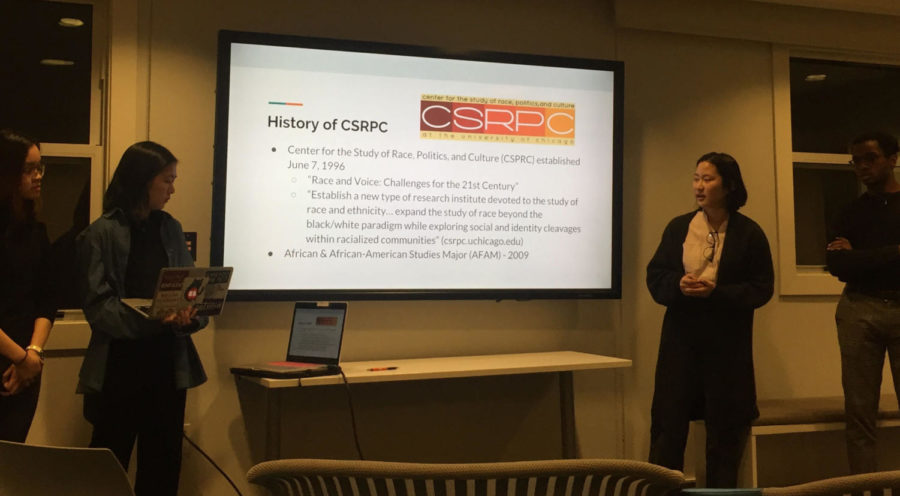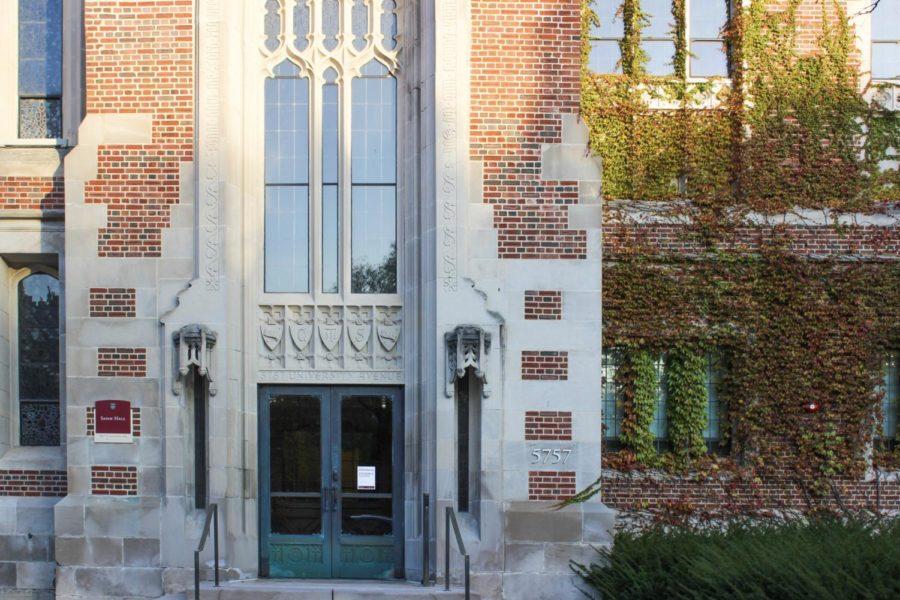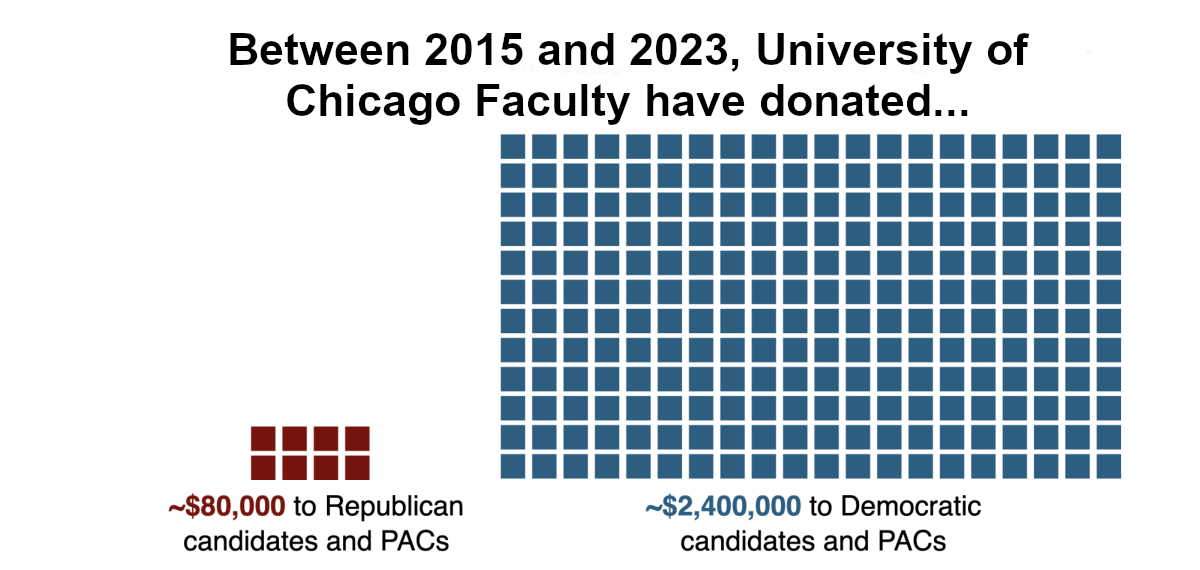“WHERE IN THE WORLD IS UCHICAGO’S RACE AND ETHNIC STUDIES?”
So ask the bold letters on the cover of the zine published by UChicago United’s Comparative Race and Ethnic Studies (CRES) Working Group. The University of Chicago has dipped its feet into ethnic studies over the years, but the CRES Working Group insists that the relatively new field remains undersupported. Crucially, they say, it lacks an academic department.
It is all too easy to imagine that the list of university subjects descended from above fully formed and perfect, but the truth is that universities have always been a work in progress. A millennium ago, when universities as we know them initially coalesced from the cathedral schools and loose confederations of scholars that preceded them, their first curricula consisted largely of the study of topics theology, Aristotle, and Galen. Over time, subjects like chemistry, economics, and linguistics joined the list. That expansion is not over, and the University of Chicago’s class catalog is no exception. New topics are joining the ranks, many of which the predominantly wealthy, white, and male scholars of the past could never imagine. If UChicago United’s Comparative Race and Ethnic Studies (CRES) Working Group has its way, a university without robust scholarship in ethnic studies will be as much a thing of the past as a university without economics or psychology.
Ethnic studies has been present at the University of Chicago for almost 30 years, but has not yet been institutionalized within its own department. The gradual growth of ethnic studies here, however, was only possible after its sudden and dramatic appearance at other schools.
Race and ethnic studies as an academic field was born from and into struggle. Major demands for institutional support of ethnic studies scholarship emerged from the tumult of mid-20th-century America, drawing their energy from the civil rights movement. The earliest large-scale push for ethnic studies was led by students, beginning when San Francisco State University’s Black Student Union (BSU) and Third World Liberation Front (TWLF) burst into the headlines in 1968. After George Murray, an SFSU student and Black Panther, was suspended from his teaching position, the BSU and TWLF rapidly accelerated from smaller anti-racist and pro–ethnic studies organizing to devising a massive all-out strike. While their efforts were not well received by SFSU administrators, students at the nearby UC–Berkeley were inspired to follow suit, founding their own TWLF and organizing their own strike with their own demands for ethnic studies. Students kept up strikes on both campuses for months, despite fierce opposition from the administrations and hundreds of arrests. After more than four months at SFSU and nearly three at UC–Berkeley, the two schools eventually conceded in 1969 and established the first two ethnic studies departments.
Since the seminal strikes in California, higher education programs in race and ethnic studies have proliferated across the U.S., leaving in their wake a smaller number of ethnic studies classes taught in high schools. Such successes for the young field, however, have rarely come easily, and have been tempered by financial and political roadblocks. More recently, an unconstitutional 2010 bill passed in Arizona attempted to ban Mexican-American studies from being taught in high school classrooms, while even the original ethnic studies department at SFSU found itself with so little funding in 2016 that, in a dreary echo of the civil rights era protests, students were driven to organize a successful hunger strike.
Race and ethnic studies has had a less conspicuous history at the University of Chicago. With the TWLF strikes comfortably years and miles away, the process of adopting and developing ethnic studies here has moved with a slower and quieter gait. Even pinning down the path of that movement is a challenge—finding the establishment date of the University of Chicago’s undergraduate program in African and African-American studies required the help of Nancy Spiegel, a University bibliographer. Spiegel delved into archived class catalogs for The Maroon and found that the African-American studies major first appeared in the 1991–92 academic year. In 2009, that program was absorbed into the then–newly founded comparative race and ethnic studies program, which promised a broader field of ethnic scholarship and a variety of specializations working together under one umbrella. Beyond undergraduate teaching, the University also hosts the Center for the Study of Race, Politics, and Culture, an interdisciplinary research institute that bills itself as “a new type of research institute […] that seeks to expand the study of race beyond the black/white paradigm while exploring social and identity cleavages within racialized communities.” The CSRPC, which was founded in 1996, administers the current comparative race and ethnic studies program.
The University of Chicago may thus far have a less dramatic history with ethnic studies, but that does not cleanly translate into a better relationship with the budding academic field. The move to replace the African-American studies program with comparative race and ethnic studies irked many students, and troubles with the new program have disappointed many more in the University of Chicago community. The University of Chicago did not respond to a request for comment. Within the last few years, some students and faculty have decided to act.
The CRES Working Group, a constituent group within UChicago United, forms the core of student activism on problems relating to race and ethnic studies at the University of Chicago. UChicago United itself is a young organization, having been active for no more than two years. The CRES Working Group, though present since UChicago United’s founding, has developed most of their programming within the last year. In this little time, members of the CRES Working Group have gathered grievances and developed a definite strategic goal: the establishment of a Department of Comparative Race and Ethnic Studies.
The first steps taken by the CRES Working Group were efforts to understand the experiences of their fellow ethnic studies students. To that end, they circulated surveys and hosted town halls. The picture that emerged was one of an under-resourced program that failed to live up to expectations. Liana Fu, a third-year CRES and creative writing double-major, and a member of the CRES Working Group, put the problem succinctly: “No professors, no classes.”
CRES lacks core classes, which are reliably taught every year. Students must instead make do largely with the one-off classes that flit in and out of the course catalog or cross-listed classes with dubious connection to their area of study. “Most of it is taught with grad student labor,” added Fu. “It’s very unstable.”
The comparative race and ethnic studies program boasts five possible specializations—Africa Past and Present, African American Studies, Latina/o Studies, Asian American Studies, and Native American Studies—but the CRES Working Group contends that it is often very difficult to satisfactorily find the four classes in a single specialization that the major requires. Fu related that she had so few options for her Asian American Studies specialization that the class advisor had to improvise. “If you take any class that has the name race in it and you wrote a paper that is somewhat related to Asian Americans, it would count as your specialization,” Fu said, paraphrasing her advisor.
Although students in all specializations have had difficulty, the CRES Working Group found that certain specializations were worse off than others. “Native American Studies basically has nothing,” said third-year CRES major Lilly Le, another member of the CRES Working Group. “Asian American Studies doesn’t have enough classes.”
Without enough support, said Fu, students of ethnic studies aren’t being given the base of knowledge that the CRES program ostensibly advertises. The classes they find can teach them a lot, said Fu, but nothing guarantees that all CRES majors share the central skills of the discipline. “People just don’t know how to talk about race comparatively,” she said. As it stands, the University is “conferring a degree that really shouldn’t be conferred this way.”
For the members of the CRES Working Group, all these problems point unavoidably toward a single solution: departmentalization. “According to our research,” said Le, “[an academic department] is a really important structure in order to get the appropriate funding.”
“The biggest difference between a department and a program is that a department has hiring power,” Fu said. “Currently the program has faculty affiliates, but no faculty that are just part of CRES. They have other obligations to other departments.” The CRES Working Group imagines that the power and funding of an academic department would be instrumental in resolving both sides of the “no professors, no classes” problem.
Comparing the condition at the University of Chicago with the scholarship produced by universities with established departments, Fu concluded that “we are very far behind as an institution without an ethnic studies department.”
The ideas of the CRES Working Group go beyond merely securing funding. Their plans for a prospective comparative race and ethnic studies department are thorough and particular. Both Fu and Le expressed concerns that if the University of Chicago is not careful, a new department could quickly lose track of what the CRES Working Group considers the mission of ethnic studies.
“We want a department that is community-focused [and] community-centered, especially as UChicago is located on the South Side of Chicago,” said Fu. “For example, like having an activist in residence, or classes open to the community.”
Le echoed that sentiment. “Our vision would be that the department would provide some of its resources to the broader community to address the ongoing contentious relationship between UChicago and the neighboring communities,” she said.
The CRES Working Group lays out their specific demands in their zine. So far, CRES Working Group activities have focused mainly on raising awareness. Low awareness among students has been a significant obstacle for the CRES Working Group. Le noted that “the majority of students on campus don’t know that the [CRES] major exists.”
Ayling Zulema Dominguez, a Class of 2019 graduate who double-majored in global studies and comparative race and ethnic studies, characterized the situation as “a negative feedback loop where, because the College doesn’t invest in the major and a corresponding department for it, not enough students show interest or are even informed about it in order to show interest, which allows the College to justify its continued lack of investment.” Dominguez was not a member of the CRES Working Group but expressed support for its policies and actions.
Beyond student-oriented organizing, members of the CRES Working Group have also reached out to faculty members at the CSRPC to coordinate efforts for improving the situation of ethnic studies at UChicago. Fu and Le both said that they appreciate the efforts of faculty members and feel that the CSRPC is aware of their concerns. The CRES Working Group, however, has its fair share of reservations about the status of faculty efforts. In addition to citing delays, Le said that she sensed that “there is a lack of unity, they can’t agree on what they want the department to look like.”
Professor Salikoko Mufwene, the interim Faculty Director of the CSRPC, is primarily a linguist, though his research interests are interdisciplinary. His experiences with the University of Chicago’s ethnic studies infrastructure corroborate the concerns of students. In fact, Professor Mufwene, who said he had “reached retirement age and wanted just to invest more time into my research,” only found himself leading the CSRPC when it became clear that the University was at a loss for other suitable candidates.
Professor Mufwene recounts that he entered the position knowing little about the inner workings of either the CSRPC or the CRES program. As he gained more experience, he came to many of the same conclusions as the CRES Working Group. “I share the frustrations of students about having a cogent program that is really aiming at producing people that are trained about race and ethnicity as academic subject matters,” he said.
What most occupied Professor Mufwene’s analysis of the problem is the lack of a consistent and thorough curriculum for undergraduate students of ethnic studies. So far, he said, “not much attention had been given to what the core requirements of CRES should consist of.”
“We are confronted with a number of problems,” he said. “In the books, it said there have been 200 to 300 courses that have been offered in CRES, but when you look at the list, many courses have been taught only once.”
Too many classes listed under CRES, said Professor Mufwene, are experiments or the creations of specific faculty members. “When we are redesigning CRES, we have to make sure that the core courses are not particularly associated with individuals. There are requirements that must be taught on a regular basis and if somebody leaves then we should find somebody else to teach that course.”
When he spoke to The Maroon, Professor Mufwene said that he was working on the “third version of a proposal” for the future of CRES. “I think that the provost office is ready for proposals to be articulated clearly that can be considered from their point of view,” he said.
Professor Mufwene’s proposal, however, focuses more on restructuring the requirements of the CRES major and the associated classes, rather than on establishing a department. According to Professor Mufwene’s outlook, students’ demands for a department may be premature: “We cannot really think about having a department,” he said, “without having a CRES program at the college level that is really up to what we promised students to receive as training.”
Moreover, Professor Mufwene pointed to the “serious logistic problems” that face departmentalization, describing the obstacles as “part of the academic politics.” The questions of which academic division would adopt a new CRES department and of how such a new department would be funded stood out in his mind.
“Every approach has financial implications for the University,” said Professor Mufwene, “and that is really beyond my control.”
Although his short-term strategy does not entirely align with the designs of the CRES Working Group, Professor Mufwene shares their conviction about the necessity of furthering the program: “The bottom line is,” he concluded, “that the University needs a strong Center for the Study of Race, Politics, and Culture, and the University needs a CRES major that the University can be proud of. We are not going to do this like amateurs. We should do this like professionals, up to the high standards of the University of Chicago.”
Paraphrasing a passage from “Ethnic Studies: Preparing for the Future,” by Otis L. Scott, Le said that “the formation of ethnic studies as a discipline was the most revolutionary moment in Western academia, period.”
It has been 50 years since students at San Francisco State and Berkeley dropped ethnic studies into the lap of an unwilling world of higher education. It hasn’t been easy for the new field to approach the level of support that other academic topics receive, and there is certainly still work to be done. Even so, the students and faculty who are doing that work here on campus are determined to see their way through.
“[Ethnic studies] has relevance to basically every quote unquote ‘traditional discipline’ that you can think of,” said Le when she was asked why ethnic studies is important. “It focuses so much on really looking at how knowledge is being produced, and in what ways have people of color been excluded from that process. It places value on the knowledge and experiences and scholarship of people of color.”
“[The CRES Working Group’s] broader vision,” she concluded, “has been that ethnic studies should be an integral part of the academic environment. We envision that the appropriate support and funding of the discipline would actually result in better care and visibility and scholarship of students of color on campus.”
Professor Mufwene, when asked the same question, responded in the spirit of the words above the phoenix: Crescat scientia, vita excolatur. “We are all engaged in advancing knowledge,” he said. “The University should be advancing knowledge about race and ethnicity—something that a lot of people outside the academia are affected by and are interested in. Universities are there to enlighten the population about things based on the scholarship of the academic body, professors and students included. It would be nice for the University of Chicago to be at the forefront of the advancement of knowledge about race and ethnicity.”









